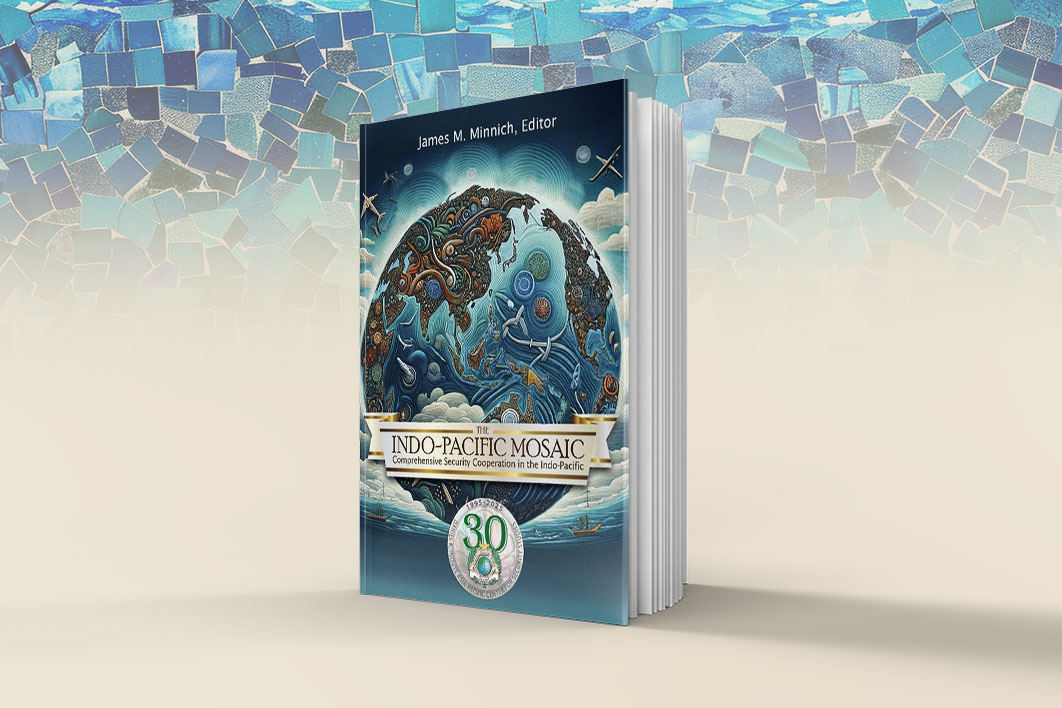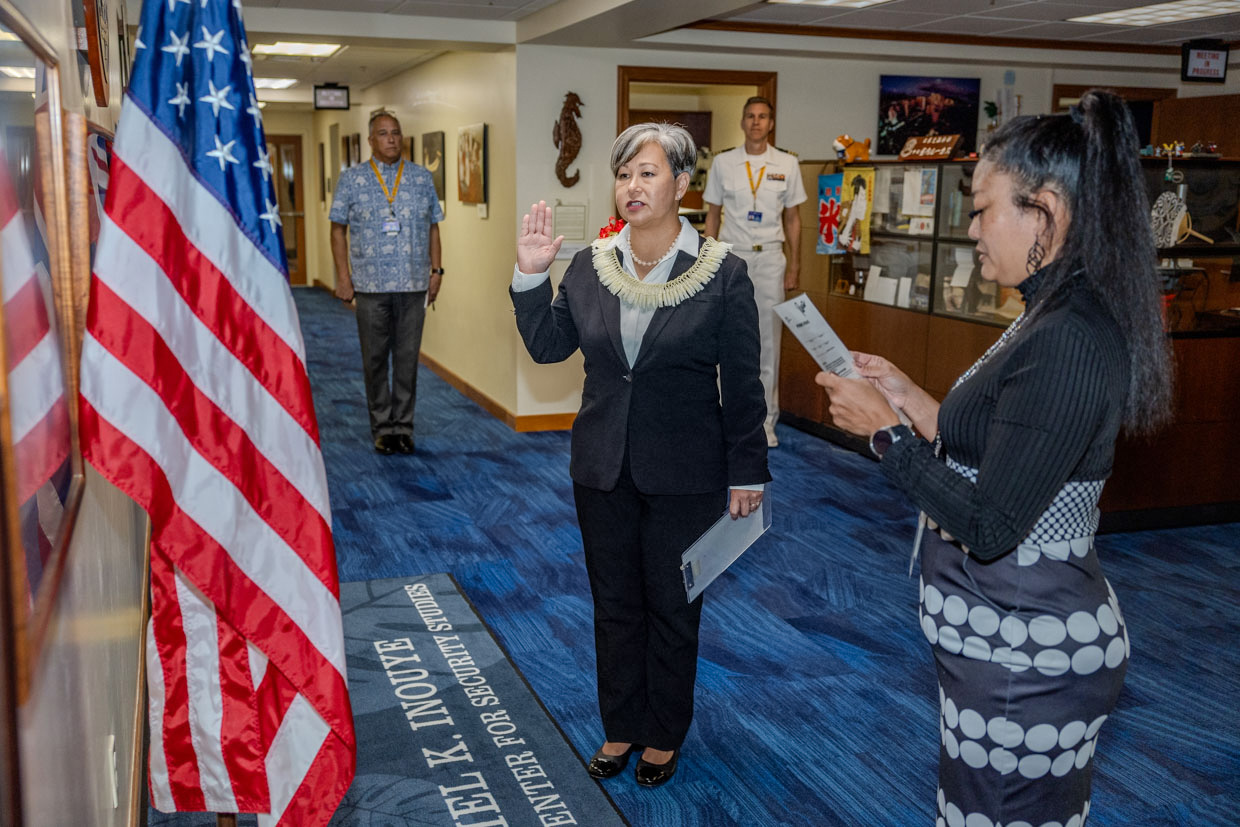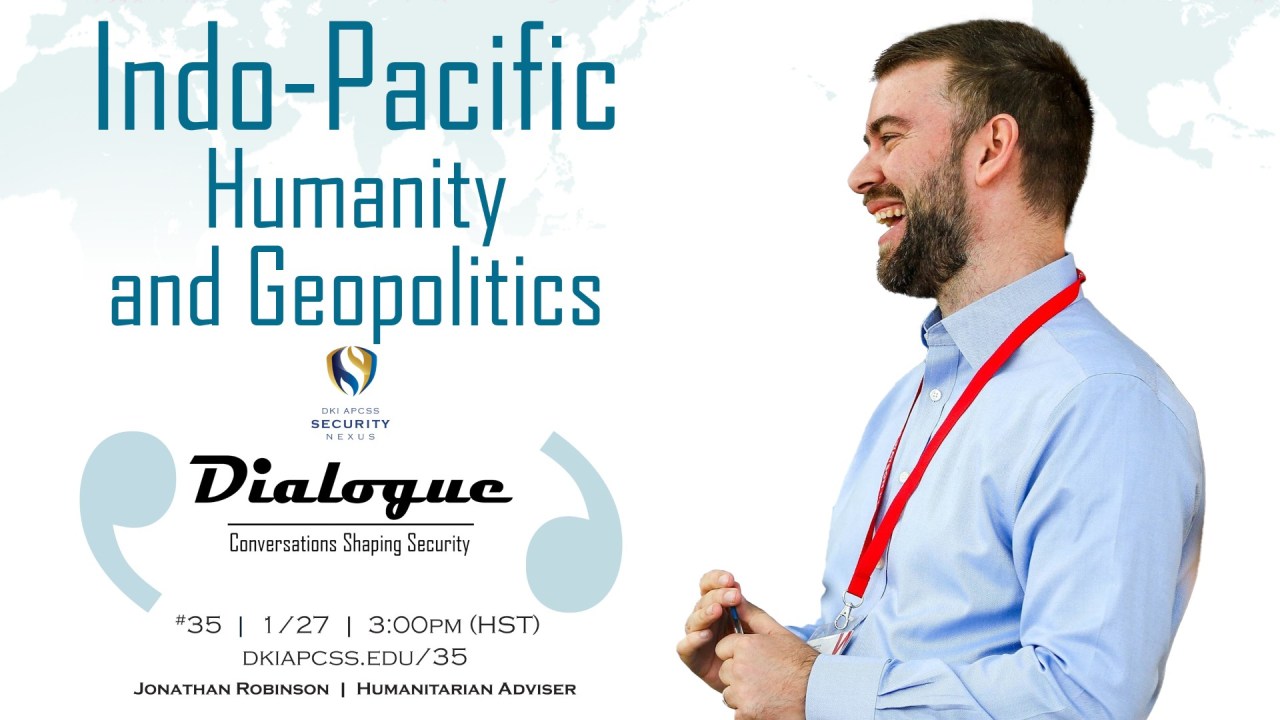By Dr. James M. Minnich
Water security has become one of the most pressing concerns in the Indo-Pacific, fueled by climate change, rapid urbanization, and unsustainable practices. This region, home to over 60% of the global population, faces a unique vulnerability to water scarcity, threatening both livelihoods and regional stability. As climate change intensifies, nations in the Indo-Pacific are confronted with the daunting task of securing this vital resource. This critical issue was the focus of a recent Security Nexus Webinar hosted by the Daniel K. Inouye Asia-Pacific Center for Security Studies, where Professor Ethan Allen and I engaged in a thought-provoking discussion.
The Evolving Water Crisis
The Indo-Pacific region experiences stark disparities in water availability, with some areas facing severe shortages while others grapple with seasonal floods. Dr. Allen emphasized climate change as a significant driver of water insecurity, intensifying droughts and altering precipitation patterns. Countries like India, Bangladesh, and the Philippines have witnessed increased heatwaves while rising sea levels threaten freshwater resources in Vietnam and Thailand.
Compounding Challenges
Unprecedented heat waves in recent years have further strained water resources. Thailand and India, for example, have recorded record-high temperatures, accelerating the depletion of critical water supplies. Freshwater scarcity is a reality for many, exacerbated by over-extraction from rivers and aquifers. Rising temperatures also increase evaporation rates, reducing water availability for agriculture, industry, and domestic use.
Urbanization and Water Demand
Rapid urbanization intensifies water stress. As cities grow, so does their water demand, placing additional pressure on strained resources. In cities like Jakarta, Mumbai, and Manila, infrastructure struggles to keep pace with population growth, leading to over-extraction and contamination. The Indo-Pacific faces the critical task of balancing urban growth with sustainable water management. Innovative solutions like water recycling and improved stormwater management are crucial for future water availability.
Transboundary Water Cooperation is a Necessity
The Indo-Pacific is crisscrossed by major rivers that flow across borders, posing challenges for water sharing. Rivers like the Mekong, Ganges, and Brahmaputra are vital for millions across multiple countries. However, unilateral water development projects like dam-building by upstream nations, such as China and India, can reduce water flow and ecological degradation downstream.
Water resource tensions can escalate without practical transboundary cooperation, threatening regional stability. Strengthening cooperative frameworks is essential for equitable water sharing and conflict reduction.
Forging a Sustainable Path
As Dr. Allen highlighted, tackling water security in the Indo-Pacific necessitates a comprehensive strategy encompassing conservation, technological innovation, and robust governance. Implementing sustainable water management practices like rainwater harvesting, water recycling, and improved irrigation efficiency is critical. Technological advancements such as desalination and smart water systems offer promising solutions but require integration into national policies and strong regulatory frameworks for effective implementation.
Conclusion
Water security in the Indo-Pacific is a complex, multifaceted challenge that necessitates coordinated efforts across borders and sectors. As climate change intensifies, the region must urgently act to safeguard water resources, protect livelihoods, and maintain regional stability. The path forward involves embracing technological innovation and collaborative governance, fostering a future where water is a source of shared prosperity rather than conflict.
Book Recommendation: The Three Ages of Water: Prehistoric Past, Imperiled Present, and a Hope for the Future by Peter Gleick (PublicAffairs, 2023).








Leave A Comment